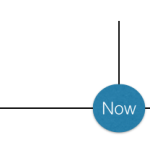In this lesson we'll look at the many ways in which we use 'will' and 'would' in English, as well as the difference between 'would' and 'used to' - something that often causes even advanced speakers of English problems! Uses a) We use 'will' and 'would' to make requests. 'Would' is generally more polite: i) Will you help me with this question?ii) Would you … [Read more...] about Will, Would and Used to
Grammar
Looking to improve your accuracy in the use of English grammar? See what’s on offer below.
Present Tenses to Describe Films & Books
You probably already know the various reasons for using the present simple and continuous tenses: to talk about facts or habits (present simple), to describe temporary situations or what is happening at the time of speaking (present continuous) or to talk about future timetables or schedules (present simple). However, one very important reason for using these tenses is to … [Read more...] about Present Tenses to Describe Films & Books
Present Perfect Versus Past Simple
During the IELTS Speaking exam you'll almost certainly be asked questions that relate to your life experiences. You might be asked to talk about the past or about experiences you have had 'so far' in your life. To do this accurately, you'll need to switch between the past and the present - and in this lesson we'll revise how to do this using the past simple and present … [Read more...] about Present Perfect Versus Past Simple
If, Provided, Unless and As Long As
You probably already know that ‘if’ is a common feature of conditional statements. For example: i) If it rains I’ll get wet.ii) If I won the lottery I’d travel around the world. However, it is also possible to use words like ‘provided’, ‘as long as’ or ‘unless’ in conditional structures, each with their own meaning.(If you need practice in … [Read more...] about If, Provided, Unless and As Long As
Conditionals for Real and Unreal Situations
What do you do at weekends?What will you do if you get the chance to work abroad?Which famous person would you like to meet if you had the chance? It’s likely that the examiner will ask you questions about ‘real’ or ‘imagined’ situations in the IELTS Speaking exam. In this lesson we’ll look at how conditional structures can help you do this. Uses We … [Read more...] about Conditionals for Real and Unreal Situations
Comparing with ‘as … as’
You’ll have lots of opportunities to compare and contrast things in your IELTS Speaking exam: perhaps describing the differences between family members or comparing one place with another. And there are many different ways of making comparisons in English. In this lesson we’ll look at using ‘as … as’. Uses a) We use ‘as … as’ with an adverb or an adjective to make an … [Read more...] about Comparing with ‘as … as’
Can or Able to?
Try this quick quiz. In which of the questions below can you substitute ‘can/could’ with ‘be able to’ and vice versa? And can you explain why? 1) How many languages can you speak?2) Do you think you will be able to understand this grammar point?3) Have you been able to study OK recently?4) Do you think it’s important to be able to speak a foreign language … [Read more...] about Can or Able to?
Articles
A short video lesson on the definite and indefinite article For many students - particularly those whose native language doesn’t have definite or indefinite articles, using them correctly can be a bit challenging. This short video, written for IELTS students but useful for anyone at upper-intermediate to advanced level, looks at this area of English. Transcript for … [Read more...] about Articles
Verb Patterns
Welcome to this 10 minute video lesson on English verb patterns. English verbs are often followed by another verb or by an object plus a verb. Depending on what the first verb is, the pattern that follows can be completely different from one verb to the next. It's an area that many students find tricky. Check out our video lesson below, written for IELTS students but useful … [Read more...] about Verb Patterns
Countable and Uncountable Nouns
Another video looking at common mistakes made by upper-intermediate and advanced learners. 'The traffic are very bad in my area', 'At university I do a lot of researches', 'The landscapes change dramatically in my country'. Just some of the mistakes we've heard from students. Watch this video to practise this area of English. Transcript for 'Countable and Uncountable … [Read more...] about Countable and Uncountable Nouns
Word Order with Adverbs
Another common problem upper-intermediate and advanced learners have. A problem students often have when using adverbs is to put them in the wrong position in the statement. Watch this short video from our '10-Minute Grammar' series for some examples and how to avoid them. Transcript for 'Word Order with Adverbs' Welcome to the latest in our series of 10 minute … [Read more...] about Word Order with Adverbs
6 Common Grammar Mistakes
Introduction Have you noticed how some mistakes seem to hang around quite a while during your studies? Even at advanced level, after years of studying English, you find yourself making the same errors again and again. Having taught a huge number of English students over the years, I've noted how the following 6 types of grammatical mistakes are often made at this level - … [Read more...] about 6 Common Grammar Mistakes


